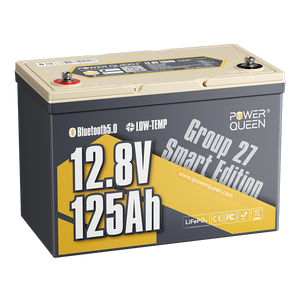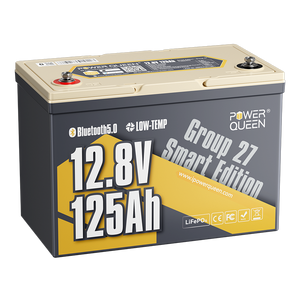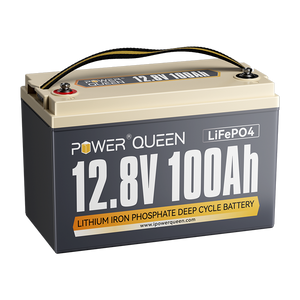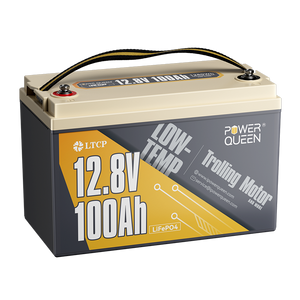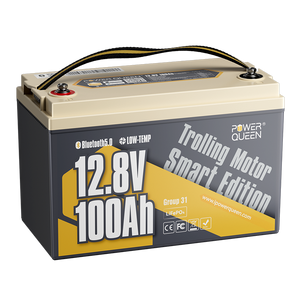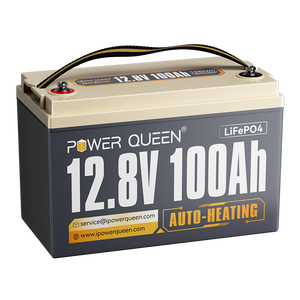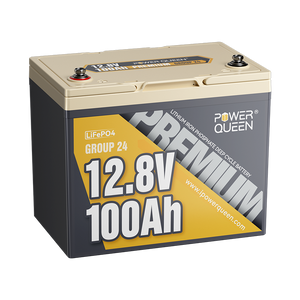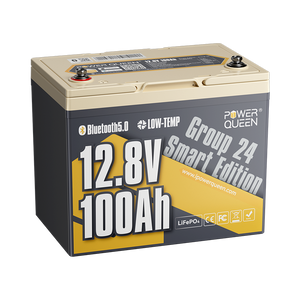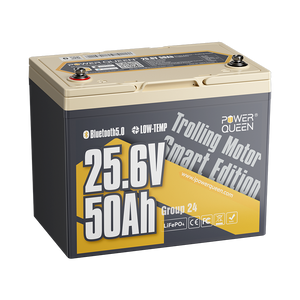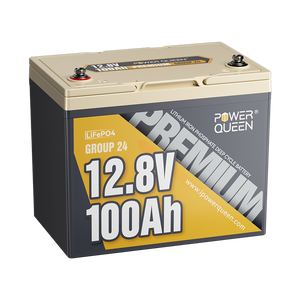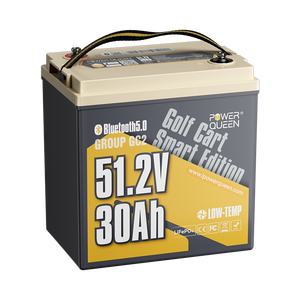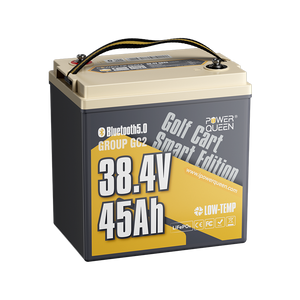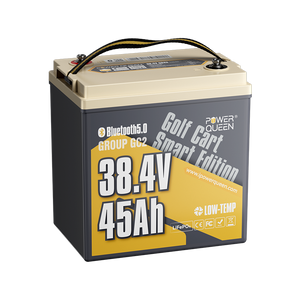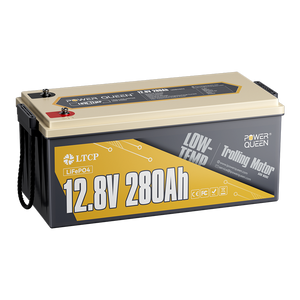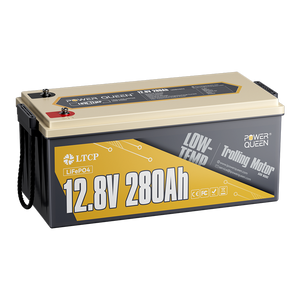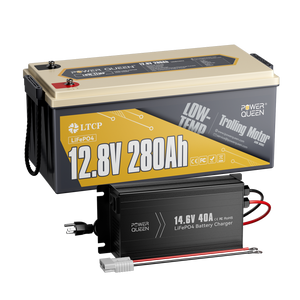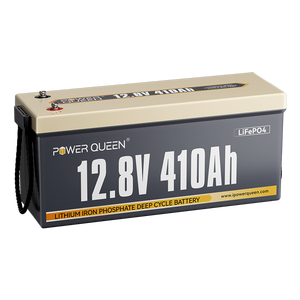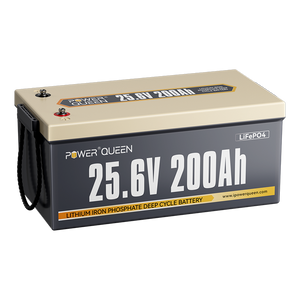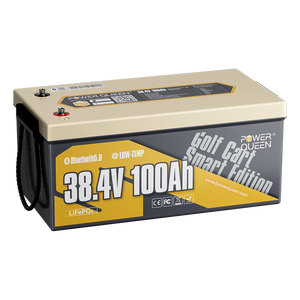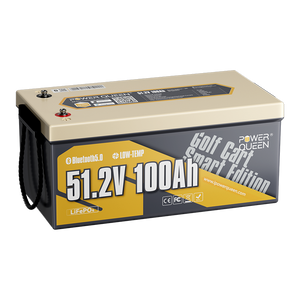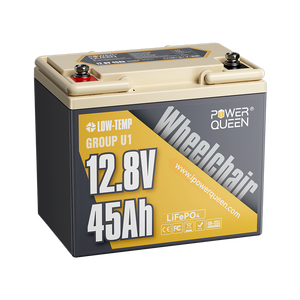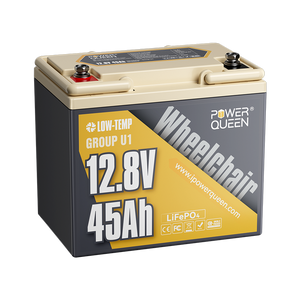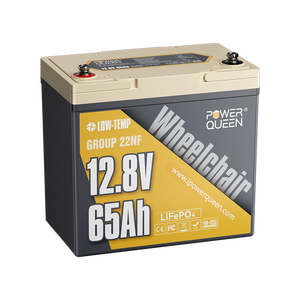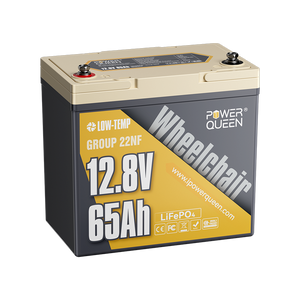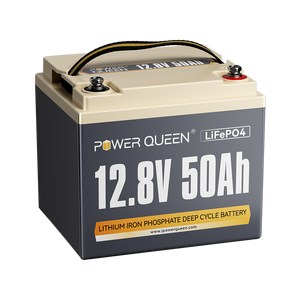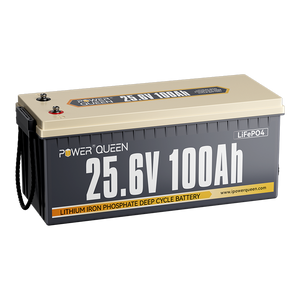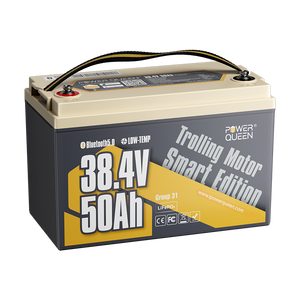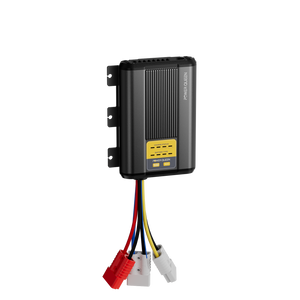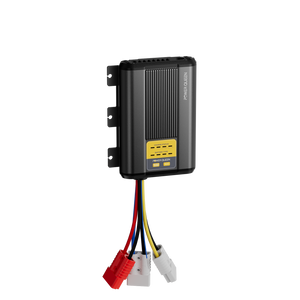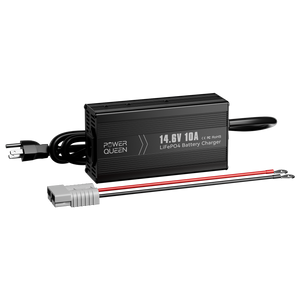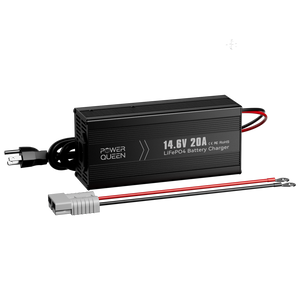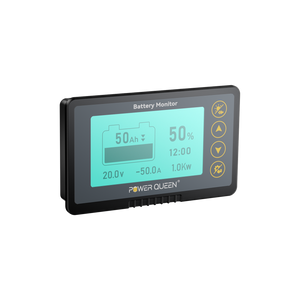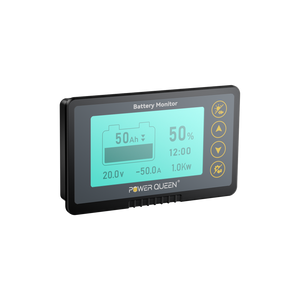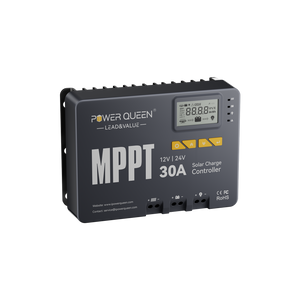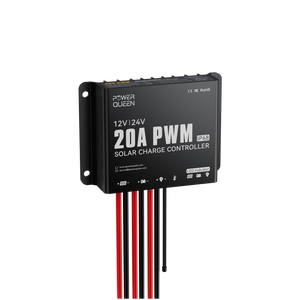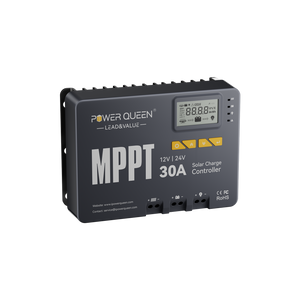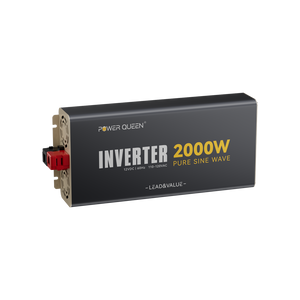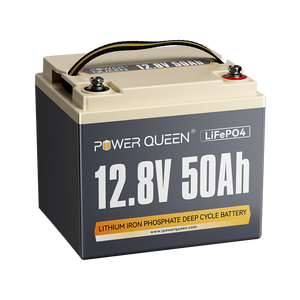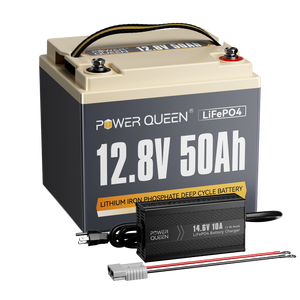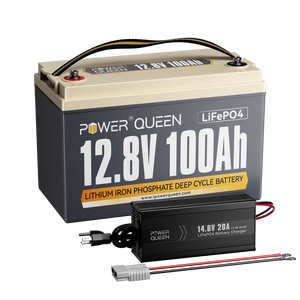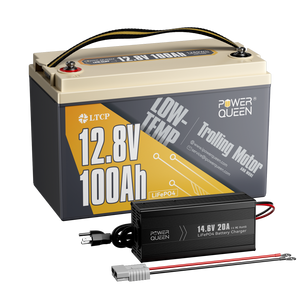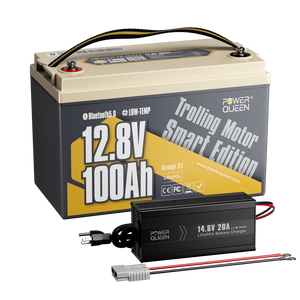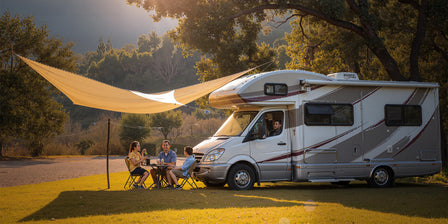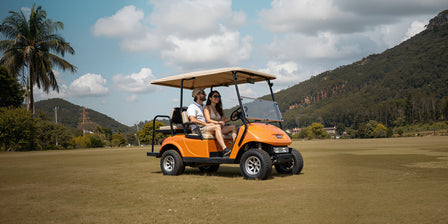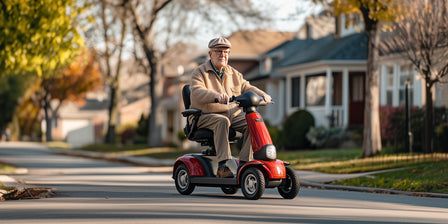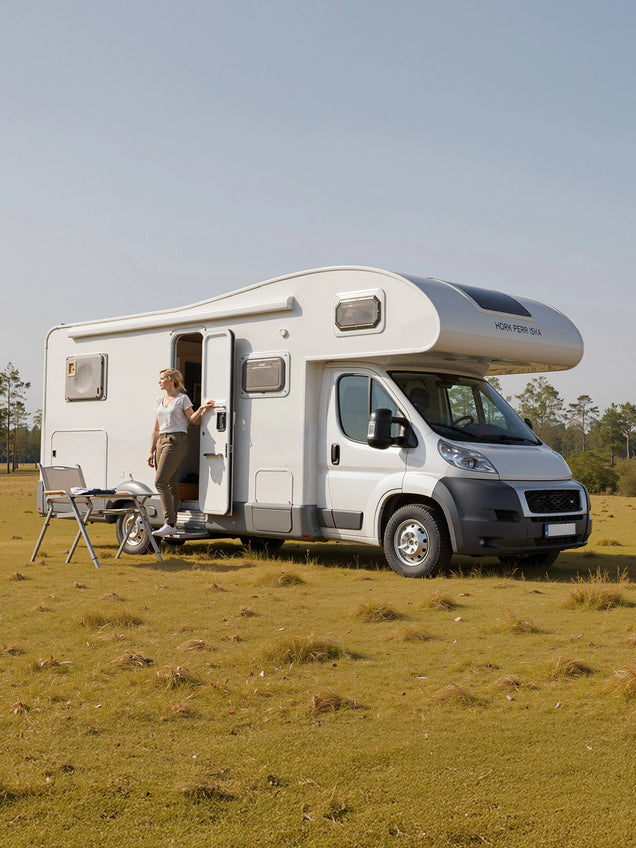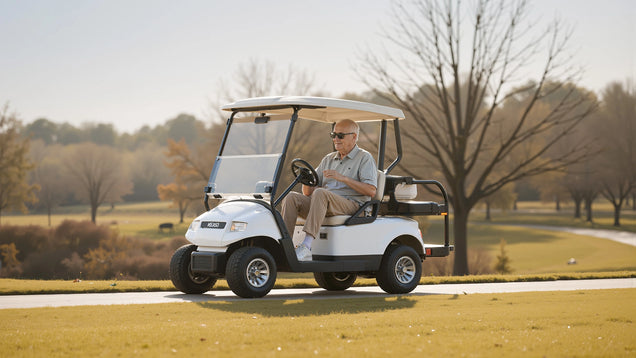Which Battery Is Best for Electric Scooter?
When it comes to powering your electric scooter, not all batteries are created equal. For those seeking a combination of safety, durability, and consistent performance, Power Queen LiFePO4 (lithium iron phosphate) batteries stand out as the top choice. Renowned for their robustness and reliability, these batteries provide an excellent balance of performance and longevity, making them the ideal choice for electric scooter enthusiasts.

Table of Content
- Part 1. Why Power Queen LiFePO4 Batteries are the Best Choice
- Part 2. Advantages of Power Queen’s Lithium Battery
- Part 3. Electric Scooter Battery Types
- Part 4. How to Choose the Right Battery for Your Electric Scooter
- Part 5. How To Charge Electric Scooter Batteries At Home
- Part 6. Signs Of A Worn Or Failing Electric Scooter Battery
- Part 7. Conclusion
- Part 8. Frequently Asked Questions
Part 1. Why Power Queen LiFePO4 Batteries are the Best Choice
Power Queen's lithium battery is manufactured with LiFePO4 (lithium iron phosphate) technology, which is the best choice for users who value safety, long-term durability, and stable performance.
Related reading: The Ultimate Guide to LiFePO4 Lithium Battery Voltage Charts
Part 2. Advantages of Power Queen’s Lithium Battery
Longer Lifespan:
This battery can last up to 4,000 cycles, far exceeding standard lithium-ion batteries (such as NMC or LiCoO2) which can only last 500-1,000 cycles.
Enhanced Safety:
They are known for their thermal stability and low risk of overheating or fire. This makes them one of the safest battery options for electric scooters.
Consistent Power Delivery:
LiFePO4 batteries maintain a stable voltage throughout the discharge cycle. Ensures smooth acceleration and reliable power even when the battery is low.
Eco-Friendly and Safe Materials:
Compared to NMC or other lithium-ion batteries that may contain cobalt and other heavy metals, Power Queen's batteries use non-toxic and more environmentally friendly materials.
Lightweight Design with High Performance:
Although LiFePO4 batteries are slightly larger than other lithium-ion chemistries, Power Queen’s advanced design ensures they remain lightweight and efficient without sacrificing range or performance.
Fast Charging and Low Self-Discharge:
Power Queen's LiFePO4 batteries can be charged quickly without overheating or shortening the battery life. They also have a low self-discharge rate, which means they can hold a charge longer when not in use, which is ideal for riders who don't use their scooters every day.
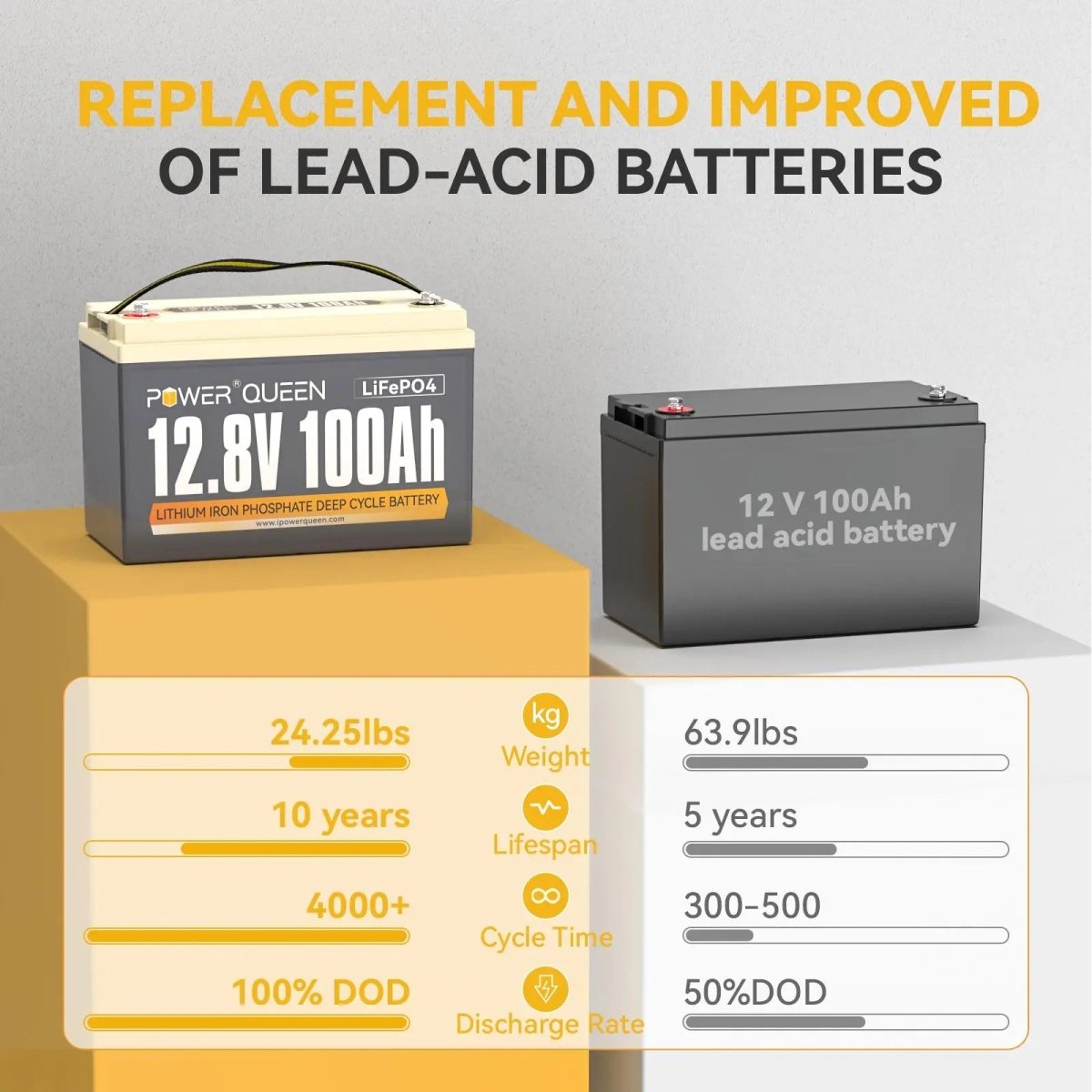
2.1 Power Queen’s Advantages Over Other Electric Scooter Batteries
- Durability: Power Queen’s LiFePO4 has up to 5 times longer service life compared to standard lithium-ion batteries such as NMC or LCO.
- Safety First: Power Queen's LiFePO4 chemistry provides the highest level of safety, significantly reducing the risk of thermal runaway or fire.
- Consistent Performance: While some lithium-ion batteries lose power as they discharge, Power Queen’s batteries maintain consistent output. This results in more reliable performance from your scooter and less range anxiety, ensuring your scooter performs optimally from start to finish of your ride.
- Eco-Conscious: Power Queen batteries are manufactured using safer, more environmentally friendly materials than other lithium-ion battery types, reducing environmental impact and ensuring responsible sourcing of materials.
If you're looking for a battery that provides long-term reliability, minimal maintenance, and maximum safety, look no further than Power Queen's LiFePO4 technology. Its combination of advanced technology, cost-effectiveness, and consistent power output makes it the best choice for anyone serious about improving the performance and lifespan of their electric scooter.
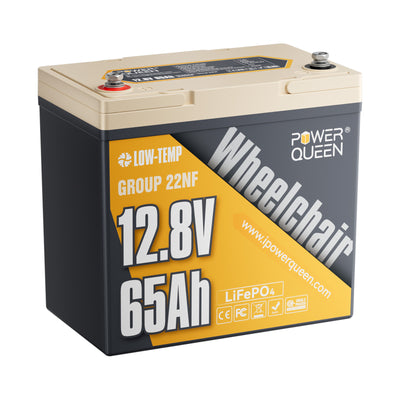

Part 3. Electric Scooter Battery Types
There are several battery types commonly used in electric scooters, each with its own advantages and disadvantages. Let’s explore them in detail to help you decide which is the best option for your scooter.
3.1 Lithium-Ion (Li-Ion) Battery
Lithium-ion batteries are widely considered the gold standard for electric scooters. They are lightweight, have a high energy density, and offer excellent performance over many charge cycles. With a longer lifespan and faster charging times, lithium-ion batteries provide optimal power, making them ideal for daily use.
- Advantages: Long lifespan, lightweight, fast charging.
- Disadvantages: Higher cost compared to other types.
- Best For: Daily commuting and high-performance electric scooters.
3.2 Lithium Manganese (INR, NMC) Battery
The Lithium Manganese battery (often seen as INR or NMC batteries) offers a balance between power output and safety. They are known for their stability and are less prone to overheating, making them a safer option.
- Advantages: Stable and safe, decent energy density.
- Disadvantages: Slightly bulkier than lithium-ion.
- Best For: Riders looking for a safe yet powerful battery option.
3.3 Lead-Acid Battery
Lead-acid batteries are the oldest type of rechargeable battery and are still found in some electric scooters. While they are more affordable than lithium batteries, they are heavier, have a lower energy density, and take longer to charge.
- Advantages: Low cost.
- Disadvantages: Heavy, short lifespan, slow charging.
- Best For: Budget scooters and short-distance rides.
The best battery for an electric scooter depends on your needs and budget. Lithium-ion batteries are the preferred choice for most riders due to their lightweight, long life, and high energy density. They offer the best balance between performance, durability, and fast charging times.
Related reading: Lead Acid vs Lithium Ion Battery: What's the Difference?
Part 4. How to Choose the Right Battery for Your Electric Scooter
Selecting the right battery for your electric scooter involves considering several key factors that directly influence your scooter's performance and efficiency. Here's what you need to know about voltage, capacity, battery management systems, and discharge rates to make an informed decision.
4.1 Voltage
Higher voltage means more power and speed. Most electric scooters come with either 36V or 48V batteries. If you need more power, some high-end models offer up to 72V batteries.
4.2 Capacity
Battery capacity, measured in ampere-hours (Ah), determines how long your scooter can run before it needs to be recharged. Higher capacity batteries offer longer range, but also increase the size and weight of the battery. Choosing the right capacity depends on how far you plan to ride without recharging.
4.3 Battery Management System (BMS)
The battery management system is important to protect your battery from overcharging, deep discharge, and overheating. Most modern lithium-ion batteries come with a BMS, which not only protects the battery but also prolongs its life by ensuring it operates within safe parameters.

4.4 C-Rate
A battery's C-rate describes its discharge rate, indicating how quickly it can deliver power. For e-scooters, a higher C-rate allows for better acceleration and higher speeds, making it ideal for powerful motors.
By considering these factors (voltage, capacity, presence of a BMS, and C-rate), you can choose a battery that best suits your scooter's performance needs and your personal riding style. Remember, the right battery will not only improve the riding experience but also the overall lifespan and safety of your scooter.
Part 5. How To Charge Electric Scooter Batteries At Home
Charging your electric scooter battery correctly is vital to ensure its longevity and performance. Here’s a step-by-step guide to charging your battery at home:
- Use The Original Charger: Always use the charger that comes with your scooter or a compatible one recommended by the manufacturer. Using an incompatible charger can damage your battery or reduce its lifespan.
- Charge In A Cool, Dry Place: Heat is the enemy of electric scooter batteries, especially lithium-ion ones. Always charge your scooter in a cool, dry area, away from direct sunlight or heat sources.
- Avoid Overcharging: While most electric scooters have built-in safeguards to prevent overcharging, it's still a good idea to unplug the charger once the battery is full. Overcharging can lead to overheating and, in the long run, reduce the battery’s lifespan.
- Charge After Every Ride: If possible, charge your scooter after each ride, even if the battery isn’t fully depleted. This prevents deep discharges, which can harm the battery over time.
- Store With A Partial Charge: If you won’t be using your scooter for an extended period, store the battery at around 50-60% charge. Storing a fully charged or completely drained battery for long periods can reduce its lifespan.
Part 6. Signs Of A Worn Or Failing Electric Scooter Battery
Knowing when your battery is starting to fail can save you from getting stranded. Look for these signs:
- Reduced Range: If your scooter's range has significantly decreased, it may be time for a new battery.
- Slow Charging: A battery that takes longer to charge than usual may be deteriorating.
- Overheating: Excessive heat during charging or use is a clear sign of a failing battery.
- Voltage Sag: If your scooter experiences sudden drops in power, it could be due to voltage sag, indicating the battery is struggling to maintain output.
Part 7. Conclusion
Choosing the best battery for electric scooters involves balancing factors such as battery type, voltage, capacity, and cost. Lithium-ion batteries are the top choice for most users, offering the best combination of performance and lifespan. Following proper charging techniques and caring for your battery can ensure you get the most out of your electric scooter, keeping you on the road for years to come.
Part 8. Frequently Asked Questions
8.1 How Long Does An Electric Scooter Battery Last?
On average, a lithium-ion battery will last around 10 years with regular use. Factors such as riding habits, charging practices, and environmental conditions can affect battery life.
8.2 Can I Upgrade My Scooter’s Battery?
In some cases, you can upgrade your scooter’s battery, but it’s important to ensure compatibility with the scooter’s voltage and capacity requirements.
8.3 Is It Safe To Charge My Scooter Overnight?
While most modern scooters have safety mechanisms to prevent overcharging, it’s best to avoid charging your scooter overnight to prolong battery life.
8.4 Can I Use Any Charger For My Electric Scooter?
No, it's crucial to always use the original charger or one approved by the manufacturer when charging your electric scooter. Using the wrong charger, such as attempting to charge a LiFePO4 battery with a lead acid charger, can lead to serious damage to your battery. This mistake could not only reduce the battery's lifespan but also pose safety risks. Always ensure compatibility between your scooter’s battery and the charger to maintain optimal performance and safety.
